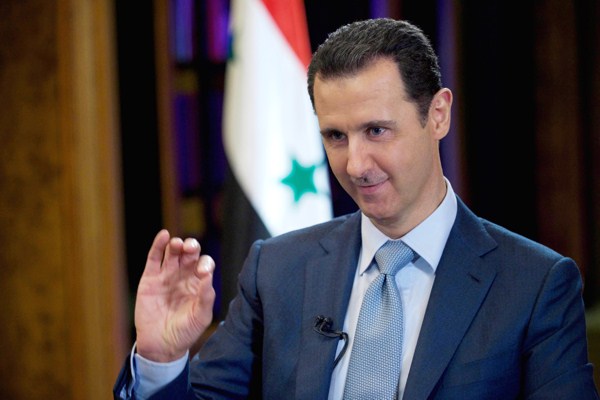In late March, Syria’s northern provincial capital of Idlib fell to Islamist rebels. A week later, both the self-declared Islamic State (IS) and Jabhat al-Nusra, al-Qaida’s branch in Syria, advanced into the Palestinian refugee camp of Yarmouk, in a suburb just six miles south of central Damascus. Despite these setbacks for Syrian President Bashar al-Assad’s regime, he has continued a choreographed international media campaign, going on French television for his latest interview with a Western news outlet so that he could present himself as the necessary partner for a political solution to Syria’s civil war, assert his strength and deny that his forces commit atrocities, like using barrel bombs and chemical weapons.
Assad’s recent charm offensive began in January with an interview in Foreign Affairs, followed by interviews with the BBC, CBS News and, earlier this month, Sweden’s Expressen newspaper. He seems to be trying to capitalize on signals that the U.S. and other Western countries are calibrating their positions on Syria, quietly dropping demands that Assad step down ahead of another round of elusive peace talks. That shift came not only because of Syria’s stalemate, but because of the preoccupations of the U.S.-led coalition against IS, captured most clearly in a recent New York Times editorial calling Assad “a necessary, if still unpalatable, potential ally in combating the Islamic State.”
This logic bought into Assad’s own rhetoric—a choice between him or the extremists. But now it looks like it could be overtaken by developments on the battlefield in Syria that expose Assad’s growing weakness.

